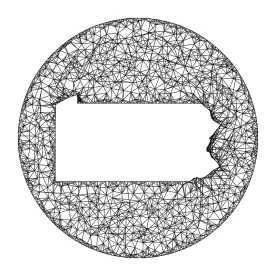On 3 November 2022, Governor Wolf signed House Bill 2057 into law as Act 122. The act made numerous amendments to Title 15 of the Pennsylvania Consolidated Statutes, known as the “Associations Code” (the Title 15 Update).1 This multipart series provides a summary of the key changes coming to Pennsylvania through the Title 15 Update. Part 1 provided a high-level summary of the key changes. Part 2 discussed the annual report requirements. This Part 3 discusses, among other things, the changes relating to the business judgment rule, extending liability-protection bylaw provisions to officers, renunciation of business opportunities, and forum selection. The Title 15 Update went into effect on 2 January 20232 with certain key provisions going into effect at a later date.3
The Title 15 Updates discussed in this Part 3, in general, provide for more flexibility to entities—embodying the principle of freedom of contract—or were adopted in response to case law.
RENUNCIATION OF BUSINESS OPPORTUNITIES
A Pennsylvania corporation, both for profit and nonprofit, may renounce any interest it may have in a business opportunity, which eliminates the requirement that an interested director or officer first bring such opportunity to the corporation. The renunciation may be a blanket renunciation or limited to specific classes or categories. The renunciation may be included in the articles of incorporation or adopted by the board of directors.4
FIDUCIARY DUTIES; BUSINESS JUDGMENT RULE; OFFICERS
In response to a case in the Southern District of New York interpreting the Associations Code,5 the Title 15 Update clarifies that a Pennsylvania director’s duty to conduct reasonable inquiry into potential issues does not extend beyond those required by statute and the statutorily defined interests and factors that the director considers appropriate.6 The Title 15 Update also adopts a statutory statement of the business judgment rule as it relates to directors (new Section 1712(d)). The statutory statement provides that a director who makes a business judgment in good faith fulfills the director’s duty if (a) the matter does not involve self-dealing, (b) the director is reasonably informed, and (c) the director rationally believes that the business judgment is in the best interests of the corporation.7
The Title 15 Update also clarifies, in response to certain case law8 regarding alleged duties to creditors, that a director owes duties only to the corporation, expressly stating that duties are not owed to creditors.9
Analogous changes were made for nonprofit corporations.10
The treatment of officers’ duties is moved to a new Section 1734, which also adopts a statutory business judgment rule for officers. The new Section 1734 also permits officers, similar to directors, to justifiably rely on information received from or prepared by other officers, employees, counsel, or other professionals. A new Section 1735 authorizes a bylaw adopted by shareholders (or a provision in the articles) to extend to officers the protection from personal liability similar to that currently available to directors in Section 1713. Unlike the analogous new Delaware provision,11 the potential protection is available to all officers, not merely certain categories of officers, and does not deny potential protection for claims brought by or in the right of the corporation.
Analogous changes were made for nonprofit corporations.12
Furthermore, rejecting a different aspect of the New York decision that interpreted the Associations Code,13 the Title 15 Update adds a new definition of “recklessness” to the Associations Code.14 The new definition makes clear that the “recklessness” limitations on permissible “supplementary” indemnification15 and on director (and now officer) liability protection16 are triggered only by a conscious disregard of a substantial and unjustified risk and not merely disregard of facts that the director or officer had “reason to know.”17
FORUM SELECTION
The bylaws or articles of incorporation of both for-profit and nonprofit corporations may include a provision providing a forum for the adjudication of internal corporate claims. Any exclusive forum provision must include at least one Pennsylvania state court and may designate courts in other jurisdictions so long as the corporation has a reasonable relationship to the jurisdiction. For claims arising under the Securities Act of 1933, the provision may provide for a federal court as the exclusive jurisdiction.18 The Title 15 Update states that such provisions do not confer personal nor subject matter jurisdiction on any specified courts.19
OTHER CHANGES
The Title 15 Update also includes the following changes, among others:
-
A tax clearance certificate need not be filed in connection with the voluntary dissolution of a nonprofit corporation.20
-
A new Section 321(f) provides rules for when the approval by shareholders of a merger or interest exchange is not required in connection with a two-step transaction for publicly traded companies.21
-
The update provides timing rules for the resignation of directors.22
-
When all directorships are vacant, any officer or shareholder may call a special meeting to elect directors.23
-
A consent of the board may be effective at a future time, provided that any director may revoke their consent until the effective time. Nondirectors may sign such consents so long as they are directors at the time of the effectiveness. The consent will still be effective even if directors who signed it are no longer directors at the time of effectiveness.24
In addition to these changes, the Title 15 Update amends the Associations Code in several other important aspects. For example, it changes and adds provisions regarding the conduct of meetings and voting, and modifies some of the provisions governing “registered” (i.e., public) corporations.25 Other critical changes include permissible methods of entity record retention,26 emergency actions of entities,27 limitations on dissenters’ rights,28 and provisions for indemnification and exculpation in entity bylaws.29
CONCLUSION
The Title 15 Update modernizes Pennsylvania’s Associations Code, particularly the Business Corporation Law, in many respects. Expanding on the latitude already widely available under the Business Corporation Law to vary many statutory default rules, it also codifies variations on some specific areas of flexibility afforded to entities under the Delaware General Corporation Law, embodying the principle of freedom to contract. Examples include renunciation of business opportunities and the authorization for corporations to limit liability of corporate officers. The update also provides important clarifications on duties of directors following interpretations of the Associations Code by some courts. Entities are also granted more leeway as to timing, with more flexibility for the effectiveness of resignations and board consents.
FOOTNOTES
1 H.B. 2057, Gen. Assemb., Reg. Sess. (Pa. 2022). Act 122 also made conforming changes to Title 54 (Names).
2 1 PA. CONS. STAT. § 1701(a)(5); see also H.B. 2057, § 112.
3 See, e.g., H.B. 2057, § 5 (adding § 146(h) to the Associations Code).
4 Id. at § 45 (adding § 1719 to the Associations Code); id. at § 83 (adding § 5719 to the Associations Code).
5 In re Nine West LBO Securities Litigation, 505 F. Supp. 3d 292, 310–12 (S.D.N.Y. 2020) (holding that directors of an LBO target company could have a fiduciary duty to investigate subsequent events to occur after they would no longer be in office).
6 H.B. 2057, § 42 (amending § 1712(a) of the Associations Code).
7 Id. at § 42 (amending § 1712 of the Associations Code).
8 In re Lemington Home for Aged, 659 F.3d 282 (3d Cir. 2011); Eddystone Rail Company, LLC v. Bridger Logistics, LLC, Case No. 17-495, 2020 WL 1233557, at *4 (E.D. Pa. Mar. 12, 2020); In re Bruno, 553 B.R. 280, 286 (Bankr. W.D. Pa. 2016).
9 H.B. 2057, §§ 42, 44, 51 (amending §§ 1712 and 1717 of the Associations Code and adding §§ 1734 and 1735 to the Associations Code, respectively).
10 Id. at § 80 (amending § 5712 of the Associations Code); id. at § 82 (amending § 5717 of the Associations Code)
11 Del. Code tit. 8 § 102(b)(7).
12 See H.B. 2057, § 87 (adding § 5733.1(b)–(d) to the Associations Code); id. at § 87 (adding § 5733.2 to the Associations Code).
13 In re Nine West LBO Securities Litigation, 505 F. Supp. 3d 292, 310–12 (S.D.N.Y. 2020) (holding that directors of an LBO target company could have a fiduciary duty to investigate subsequent events to occur after they would no longer be in office).
14 H.B. 2057, § 1 (amending § 102 of the Associations Code).
15 15 PA. CONS. STAT. § 1746(b).
16 H.B. 2057, §§ 43, 50 (amending § 1713 of the Associations Code and adding § 1735 to the Associations Code, respectively)
17 See Nine West, 505 F. Supp. 3d at 814.
18 H.B. 2057, §§ 37, 79 (adding §§ 1513(a) and 5513(a) to the Associations Code, respectively).
19 Id. at § 37 (adding § 1513(b) to the Associations Code).
20 Id. at § 4 (amending § 139(c)(2) of the Associations Code).
21 Id. at § 15 (adding § 321(f) to the Associations Code).
22 Id. at § 47 (amending § 1724 of the Associations Code).
23 Id. at § 48 (adding § 1725(b)(3) to the Associations Code).
24 Id. at § 49 (amending § 1727 of the Associations Code).
25 E.g., id. at § 40 (amending §§ 1704, 1708, 1709 of the Associations Code); id. at § 53 (amending § 1755 of the Associations Code); id. at § 54 (amending §§ 1758, 1763 of the Associations Code); id. at § 60 (amending §§ 2522, 2528 of the Associations Code); id. at § 61 (adding § 2530 to the Associations Code); id. at § 65 (amending § 2561 of the Associations Code).
26 Id. at § 2 (amending § 107(a) of the Associations Code to permit record retention through blockchain technology).
27 Id. at § 34 (amending § 1509 of the Associations Code).
28 Id. at § 40 (amending § 1571(f) of the Associations Code); id. at § 16 (amending § 363(c) of the Associations Code).
29 Id. at § 52 (amending § 1743 of the Associations Code).






 />i
/>i

